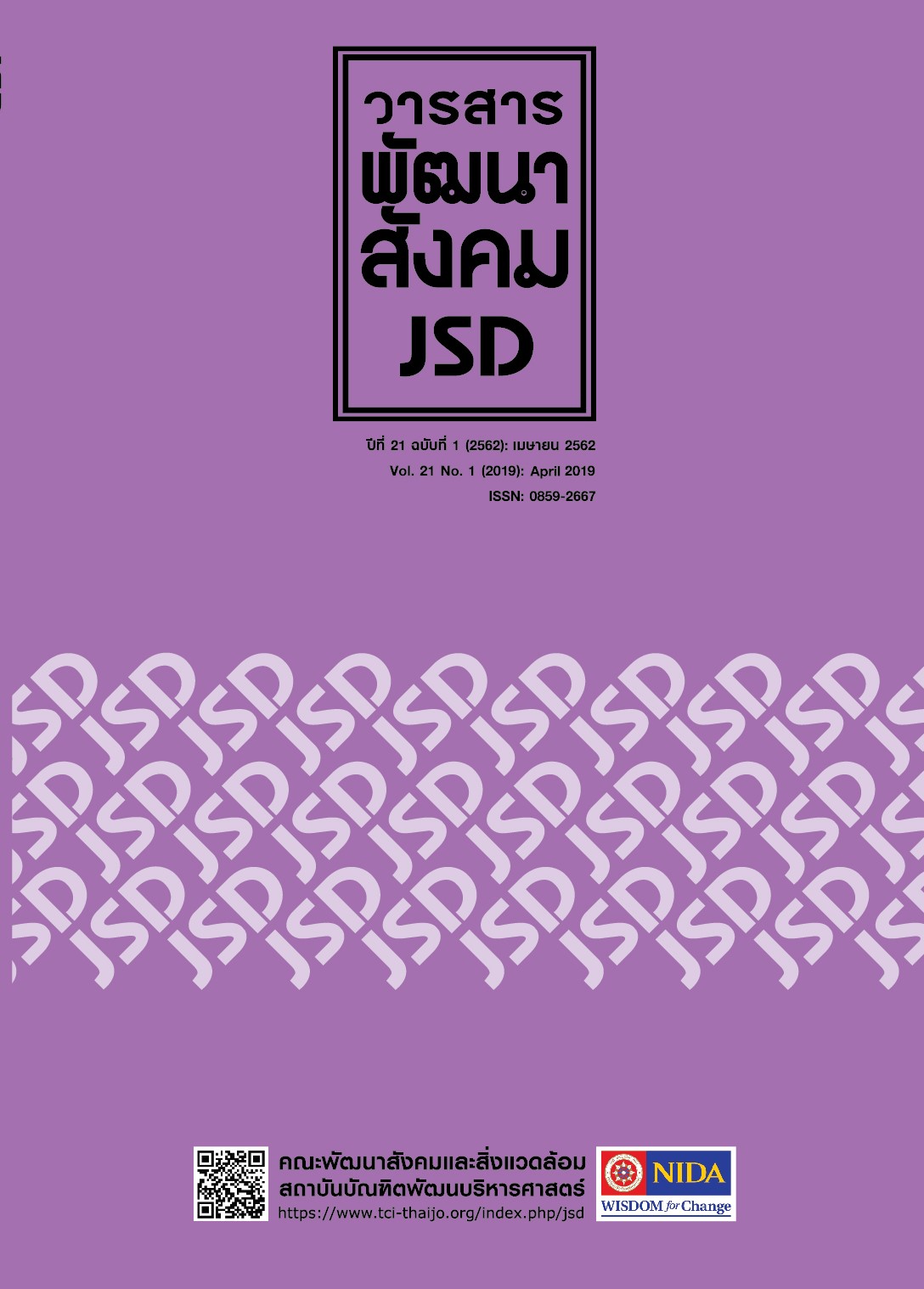Urban Middle Class and the Quality of Life Development: The Case Study of Northern and Western Outskirts of Bangkok and Periphery.
Main Article Content
Abstract
Class-consciousness is a complex term with a very wide social definition depending on the socio-cultural context. Generally, in Thai society, middle class relates to the culture and the urban way of life. Urban development includes various physical, economic and social changes that have a significant impact on people’s quality of life. This article looks at how the urban middle class define themselves within the urban lifestyle, and proposes recommendations for sustainable adjustment in the midst of consumerism. It focuses on the cultural diversity of the so-called urban middle-class lifestyle and their quality of life as it pertains to sustainable urban development. The qualitative method using Macro ethnography and phenomenology analysis are used. Snowball and Network techniques are important research tools. The unit of analysis is the Thai urban middle class, falling into two main groups as defined by academics. The first group is defined by an educational, socio-economic scale, and the other by income as a whole: upper and lower. The areas of study are the urban areas in the northern and western outskirts of Bangkok and its periphery, where urbanization is expanding rapidly.
It is suggested that apart from their daily consumption, the middle class should practice more “solidarity” in their collective consciousness, in order to improve their quality of life, and also to perform social responsibility to bring about sustainable urban development for “urban solidarity”
Article Details
References
Devine,Fiona. (2005) “Middle –Class Identities in The United States” inF.Divine et al.(ed.), Rethinking Class. China: Palgrave Macmillan.
Diener, E. (1984) “Subjective well-being”Psychological Bulletin 95: 542-75.
Hays,Jeffrey. (2008) “THAI SOCIETY: HIERARCHY, STATUS, CLASS, HI-SO CULTURE AND THE PATRON-CLIENT SYSTEM” Retreived from http://factsanddetails.com/southeast-asia/Thailand/sub5_8c/entry-3228.html.
Kingston, P.W. (2000) The Classless Society.Stanford,CA: Standford University Press.
Klausner, William J. (1997). Thai Culture in Transition. Bangkok: Amarin Printing & Publishing.
Lasuka, Pasoot. (2015).The Good Individuals of the State: Middle-Class Culture and Politics in Thai Biogrphical Films after 2006. A thesis submitted for the degree of Doctor of Philosophy, School of Culture, History, and Language, College of Asia and the Pacific, The Australian National University.
McCall, S. (1975) “Quality of life” Social Indicators Research2: 229-48.
Miles, Steven. (1998). Consumerism as a Way of Life. London: Sage.
Myers, D. and Diener, E. (1995). “Who is happy?”Psychological Science 6. :10-19.
Phongpaichit, Pasuk and Baker, Chris. (1995). Thailand Economy and Politics. Kuala Lumpur: Oxford University Press.
Phongpaichit, Pasuk and Baker Chris. (1998). Thailand’s Boom and Bust. Chiangmai: Silkworm Books.
Rogerson, R., Findlay, A.,Paddison, R. and Morris, A. (1996). “Class, consumption, and quality of life” Progress in Planning 45. : 1-66.
Rogerson, J.R. (1999). “Quality of Life, Place and the Global City” in Yuan. L.L et al. (ed.) Urban Quality of Life Critical Issues and Options. Singapore: Vetak Services.
Savage, Mike, et al. (2005). “Local Habitus and Working Class Culture” in F.Divine et al.(ed.), Rethinking Class. China: Palgrave Macmillan.
Smith, Philip Cornwell. (2005). Very Thai. Everyday Popular Culture. Bangkok: River Books.
Stimson, et al. (1999). “Urban Metabolism as a Framework for Investigating Quality of Life and Sustainable Development in the Brisbane-Southeast Queensland Metro Region” inYuan.L.L et al. (ed.) Urban Quality of Life Critical Issues and Options. Singapore: Vetak Services.
Zukin, Sharon. (1995). The Cultures of Cities. Oxford: Blackwell.

